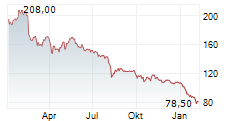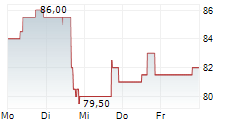GoDaddy Consumer Pulse survey results delve into generational security perceptions
TEMPE, AZ / ACCESS Newswire / July 16, 2025 / A new GoDaddy (NYSE:GDDY) survey reveals a surprising paradox among younger consumers: while Gen Z and Millennials appear less concerned about protecting themselves online, they have little tolerance for businesses that fall short on security.
In the latest GoDaddy Consumer Pulse* survey of 1,500 U.S. consumers, 42% of Gen Z and 40% of Millennial respondents admit they would not immediately change their passwords or credit card information after being notified of a data breach at a business they use-if they act at all. In contrast, 72% of Gen X and Boomers would take immediate action.
Meanwhile, these same younger consumers are the first to walk away when a business fails to protect their data.
More than half of Gen Z (53%) and 42% of Millennials surveyed have cut ties with a business because it experienced a security incident-notably higher than the 37% of Gen X and Boomers
When faced with data breaches at both a large corporation and a small business, 1 in 3 (34%) Gen Z and Millennials say they would stop shopping with both entirely, compared to 27% of Gen X and Boomers
Consumers assess business credibility with a fine-tooth comb
Most consumers (68%) surveyed expect small businesses to maintain the same level of digital security as large corporations or better.
A website with misspelled or grammatically incorrect words, broken links, a poor design, slow load times, or an unfriendly mobile user experience rank among the top five red flags that deter consumer purchases.
However, younger generations find a few things more concerning than older shoppers:
About 1 in 3 (30%) Gen Z and Millennials say sites that are not mobile-friendly are concerning vs. 24% of Gen X and Boomers
31% of Gen Z and 27% of Millennials feel uneasy when websites have ads vs. 18% of Gen X and Boomers
Nearly 1 in 4 (21%) Gen Z and Millennials feel businesses using a free email address like Gmail or Yahoo are concerning vs. 15% of Gen X or Boomers
"With younger consumers, you might not get more than one chance to earn their trust," said Dennis Smith, director of security go-to-market at GoDaddy. "They assume some risk but expect businesses to take responsibility for keeping their data safe. If small businesses don't invest in a secure, professional online presence and clearly demonstrate to their customers how they're protecting their data, these younger shoppers will take their business elsewhere."
Consumers lack cybersecurityhygiene
Although more than 1 in 3 (38%) consumers report they have been a victim of identity theft in the past, people across all generations have quite relaxed security habits.
The majority of consumers (61%) repeat passwords across their various accounts-a habit slightly more common among Gen Z and Millennials compared to Gen X and Boomers. Notably, 69% of consumers also do not check if a website has a secure padlock icon before making online purchases.
As a consumer, what steps do you take to help protect yourself from being hacked? | ||||
| Total | Gen Z | Millennials | Gen X and |
I use a different password for every | 39 % | 38 % | 33 % | 42 % |
I don't save my credit / debit card | 35 % | 33 % | 32 % | 37 % |
I use a credit monitoring service | 35 % | 26 % | 34 % | 38 % |
I use a password manager that creates | 32 % | 33 % | 36 % | 30 % |
I check that the website has a padlock | 31 % | 36 % | 31 % | 30 % |
I froze my credit | 22 % | 26 % | 20 % | 21 % |
None of the above | 9 % | 10 % | 10 % | 8 % |
Personal risk is perceived as inevitable
The findings suggest a growing sense of cybersecurity fatigue among consumers. While 65% of all consumers say they're more concerned about online security than they were five years ago, a small subset of younger consumers (21% of Gen Z and 16% of Millennials) report being less concerned than they were five years ago, compared to 7% of Gen X and Boomers.
Meanwhile, the majority (67%) of consumers believe that their personal information is already on the dark web.
"The data points to classic signs of consumers feeling overwhelmed," said Smith. "Businesses that can step in to take security concerns off consumers' plates will build deep loyalty, while those that ignore or downplay security risks will forfeit long-term growth."
What can small businesses do?
The survey found consumers are more likely to remain loyal to businesses that respond to breaches with transparency and extend support to their customers.
More than 2 in 5 (43%) of consumers appreciate when a business is open and transparent about a security breach
Half (53%) of consumers would stay loyal to a business that takes immediate steps to fix a breach and offers proactive protection like credit card monitoring
1 in 4 (23%) consumers said having loyalty or rewards points on the line would influence your decision to remain a customer
There are some simple, cost-effective changes small businesses can implement to improve consumers' perception of their business. For example, they can test that their website loads quickly and renders well across Apple and Android mobile devices. Or they can upgrade to an email address that matches their business's domain name, if they don't already use one.
To help small businesses protect their website, GoDaddy offers a suite of security solutions-from Website Security firewall bundles to a range of SSL certificates and Managed SSL plans. These tools, paired with sound security practices, can help businesses of every size meet rising consumer expectations.
To learn more about GoDaddy and its products, visit www.GoDaddy.com.
*GoDaddy Consumer Pulse is a series of surveys of consumers ages 18 and above conducted throughout the year.
About GoDaddy
GoDaddy helps millions of entrepreneurs globally start, grow, and scale their businesses. People come to GoDaddy to name their idea, build a website and logo, sell their products and services and accept payments. GoDaddy Airo®, the company's AI-powered experience, makes growing a small business faster and easier by helping them to get their idea online in minutes, drive traffic and boost sales. GoDaddy's expert guides are available 24/7 to provide assistance. To learn more about the company, visit www.GoDaddy.com.
Source: GoDaddy Inc.

View additional multimedia and more ESG storytelling from GoDaddy on 3blmedia.com.
Contact Info:
Spokesperson: GoDaddy
Website: https://www.3blmedia.com/profiles/godaddy
Email: info@3blmedia.com
SOURCE: GoDaddy
View the original press release on ACCESS Newswire:
https://www.accessnewswire.com/newsroom/en/telecommunications/security-double-standard-young-consumers-reuse-passwords-expect-businesses-to-be-1049265



